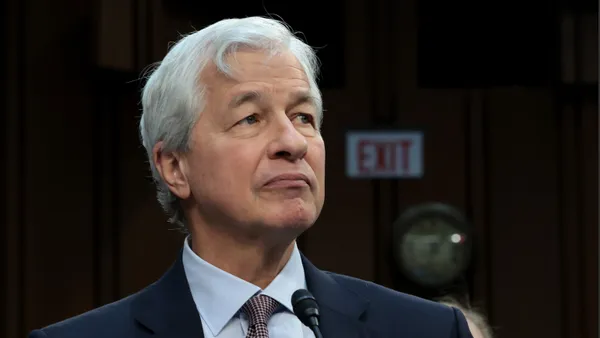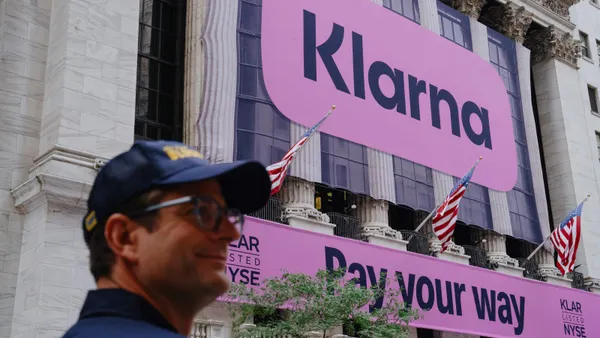Banks stand to benefit as much as fintechs in a new era of open banking, with consumer financial data flowing freely between the two, generating new insights about the market, fintech executives said Thursday.
“The big misunderstanding is that it’s fintech versus bank, and we definitely don't see it that way,” said Ryan Caldwell, the founder and chief executive of MX Technologies, a Lehi, Utah-based data aggregation company.
“There’s this confusion that it’s data going one way, as if there’s just data leaving the bank. That’s not what’s happening.”
Caldwell joined executives from Ambrook, an accounting and payments startup; the venture capital firm Andreessen Horowitz; and startup accelerator Y Combinator for a virtual town hall the Financial Technology Association convened to bolster its case for an open banking system in the U.S.
The session was moderated by former Rep. Patrick McHenry, R-NC, who until January chaired the House Financial Services Committee.
Open banking, authorized under the Dodd-Frank Act, is a CFPB-formulated policy under which Americans would be able to control their personal financial data more overtly, allowing them to shift between financial institutions more easily and spurring more market competition.
Open banking has “bipartisan support” in Congress, said McHenry, who works as a senior adviser for Lazard. He is also an advisory board member at BGR Group, a Washington-based lobbying and government affairs firm.
The FTA is lobbying the Consumer Financial Protection Bureau to uphold the basic tenets of a 2024 open banking rule enacted under the Biden administration as the bureau revamps the framework.
The Bank Policy Institute, the Kentucky Bankers Association and Forcht Bank sued the CFPB last October to block the rule, challenging several aspects, including its prohibition against assessing fees for data access.
In July, a federal judge stayed the litigation after the CFPB said it would revise the rule. The bureau is collecting public comments for its revision work through Oct. 21.
Rather than a one-way flow of consumer data from banks to fintechs, Caldwell said, banks receive “real-time” data from hundreds or thousands of fintechs on “what their consumers are connecting to, what they care about, what they stay connected to, and why, and they can figure out the needs that allow them to modernize and better serve their consumers.”
For fintechs, the fate of U.S. open banking gained new urgency in recent months as JPMorgan Chase, the largest U.S. bank, informed several data aggregators of new fees for access to consumers’ financial information. Such fees, if widely adopted, would add hefty costs for fintechs seeking to handle transactions and lure new customers.
Such costs would make many fintech startups unviable, said Alex Rampell, an Andreessen Horowitz partner and co-founder of buy now, pay later company Affirm.
“A lot of these companies just wouldn’t exist, literally,” Rampell said. “I’m pretty sure that if Apple said, ‘Hey, $10 has to be paid every time photos leave your phone,’ Instagram wouldn’t have gotten off the ground. How would they pay for that?”
Caldwell said many banks can benefit from open banking “but we have to get through this education that fintechs existing are the best thing that’s ever happened to banks, and we’re going to have the strongest banks as they embrace the fintech revolution.”
Mackenzie Burnett, the co-founder and CEO of Ambrook, which makes accounting and payment software for rural farmers and ranchers, said that open banking is critical to give smaller businesses and rural Americans “access to the same quality of tools and insights that enterprise or urban customers already have access to.”
“We really believe that affordable, open banking is foundational to a fair and inclusive financial system where small businesses and community banks both can participate, not just the largest institutions,” Burnett said, from a customer’s barn in Vermont. “And so without this consistent, affordable [application programming interface] access, rural businesses are disproportionately excluded from modern finance.”













